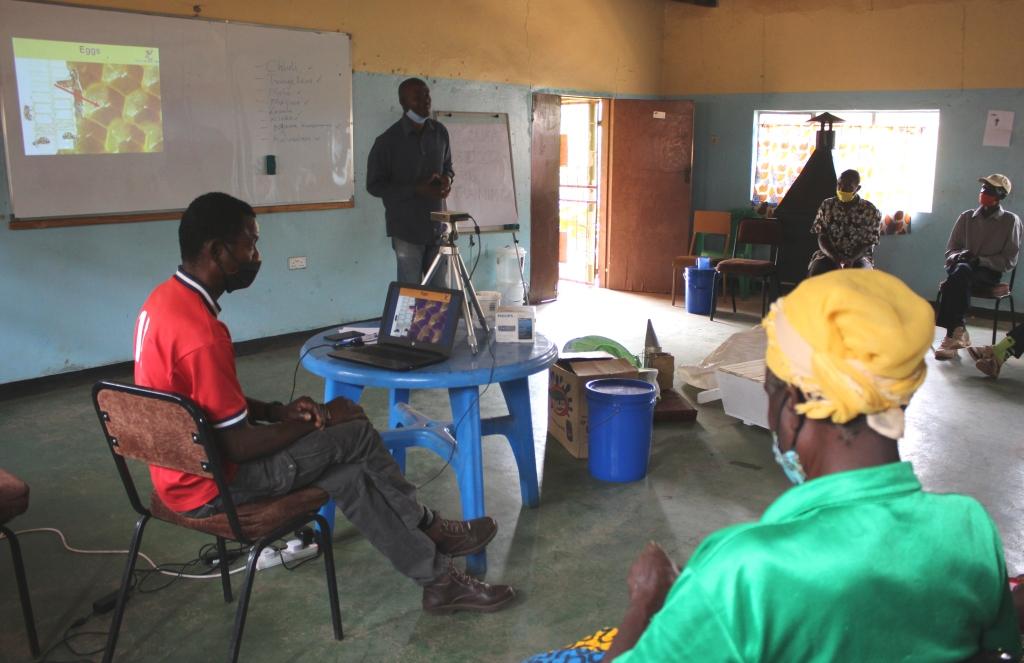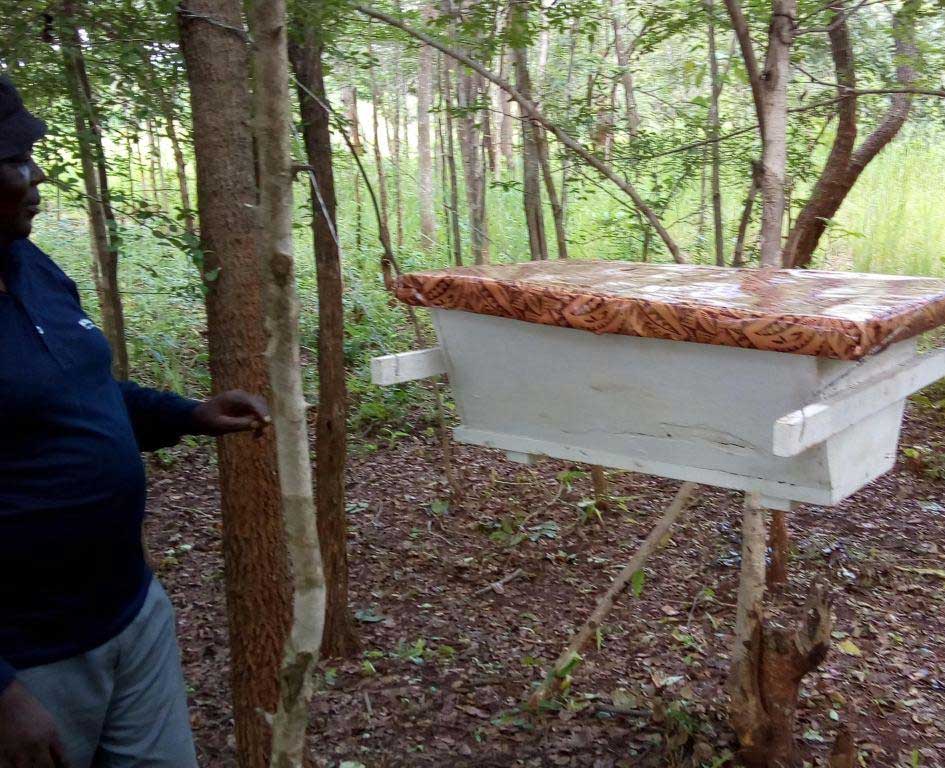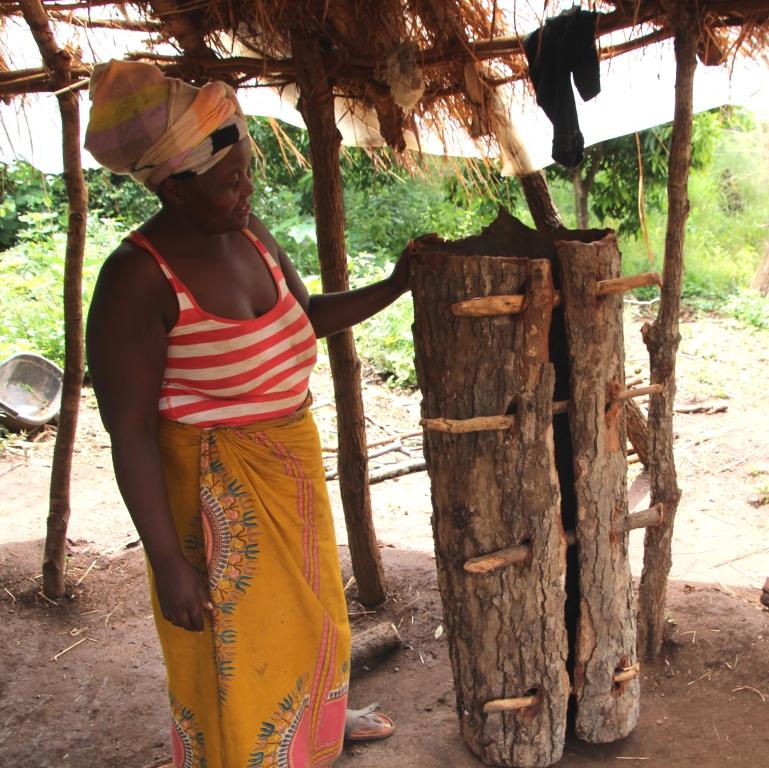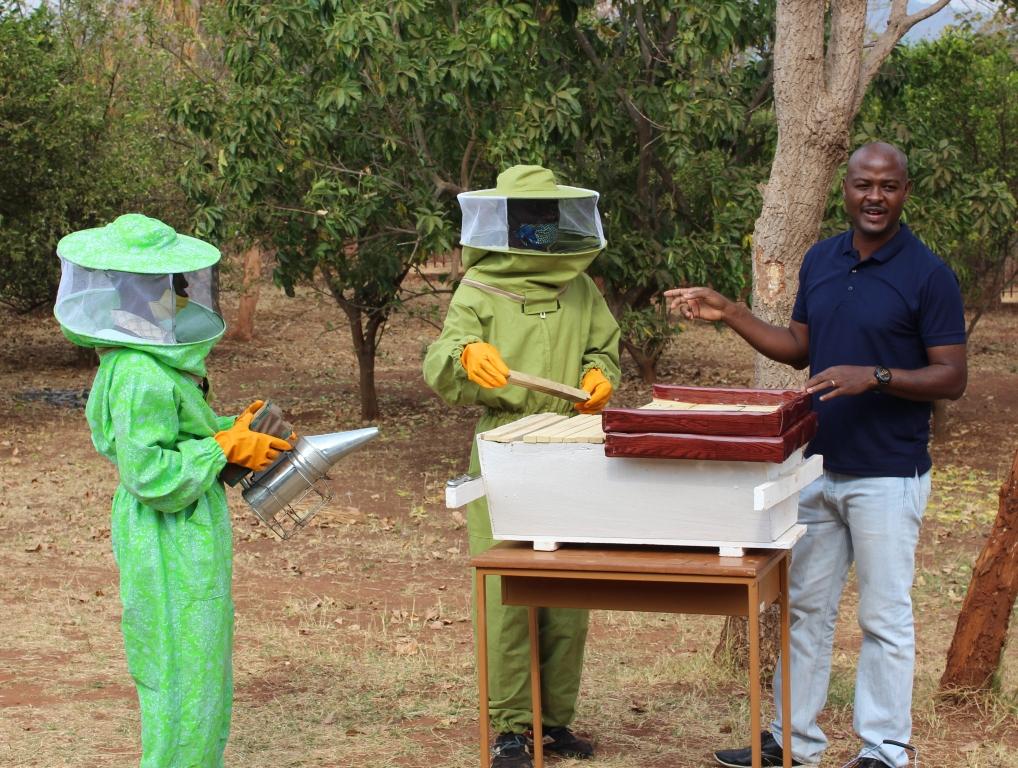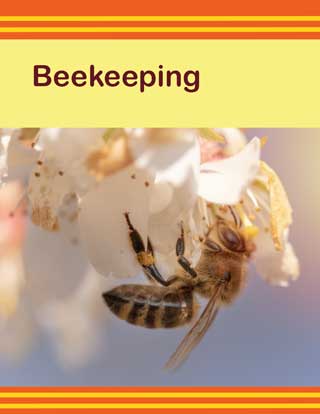Thanks to funding through Transform International Canada, we trained 132 beekeepers in the past two months. Frank Leenen (PUM) has trained four local trainers in basic knowledge of beekeeping and Pious Nyirongo has taken on the business part. Jacana believes it is important that the beekeepers not only have knowledge about keeping bees, but also that they earn money with it and can reinvest part of it, so that their business grows. Financial planning is essential for this, although it is not easy for the majority. The trainers guided the beekeepers step by step though each subject and that resulted in many “oh’s and ah’s”.
Who have we trained?
In four places around Chipata we trained people who already have one or more beehives, so keeping bees is not completely new to them. The vast majority of beekeepers use traditional beehives. These are hives made from the bark of a tree. They cut a large piece of bark from a thick tree, you understand that the tree will not survive. Harvesting is also very difficult from traditional hives, there is a lot of fire and smoke involved. Many bees die in this process. That is why we introduced the top bar hives. These are hives that are mainly used in Africa and are made out of wood from the Malaina (Gmelina Arborea) tree. After cutting down this type of tree, it grows back and can be used again after five to ten years. The advantage of these top bar hives is that they are much easier to harvest, the bee colony survives the harvest and the hive can be used for years. Harvesting can be done in ten minutes and requires little smoke.
What have the beekeepers learned?
In addition to introducing a new type of beehive, the trainers discussed the following topics:
- What is a professional beekeeper?
- Pollination, role of the bee.
- What does a bee look like?
- What does a colony look like?
- Life cycle of the bee.
- Bee as a farm animal.
How do I harvest honey and how do I protect myself?
At the end of the theory day the students did a “dry run”. How do you protect yourself, what tools do you need, warn your surroundings, how do you approach a hive, how do you open the hive and how do you harvest the honey and the most important thing is how you harvest the good quality honey.
This last part will be discussed even more in the coming months, when the trainers will visit each other in groups of five beekeepers. Together they will examine the condition of the hives and learn how to harvest honey in a sustainable and productive way. For example, they learn that they should never harvest all the honey, after all, the bees must also have food to survive. This is going to be an exciting activity for many, as many beekeepers have so far outsourced harvesting to others. They therefore had no insight into the yield and how the hive was left behind. Most beekeepers don’t have protective clothing and the African Scutellata bee is defensive and sometimes very aggressive, so you don’t want to approach them without protective clothing. The donor made it possible that all beekeepers get two bee suits, a smoker and a top bar hive. The beekeepers pay a small contribution for it.
The future.
For a small-scale farmer, keeping bees can make a huge difference. They can generate extra income and, for example, send their children to school. In addition, bees are of course excellent pollinators and the harvest of vegetables and fruit can only increase.
The 132 newly trained beekeepers can join Eastern Beekeepers Cooperative (EBC). Via this cooperative they can have their honey pressed and bottled. The wax -currently being thrown away- will be sold by the cooperative.
Jacana is currently preparing the construction of a food processing unit. The honey will be pressed and bottled and the wax will be stored. Jacana will guide the EBC management of the honey processing unit with the aim that they can operate completely independently after a few years.

